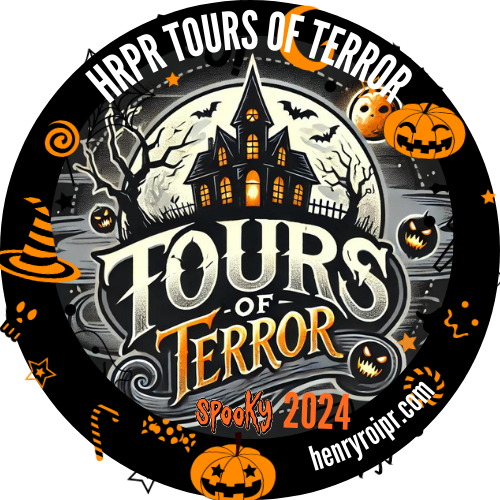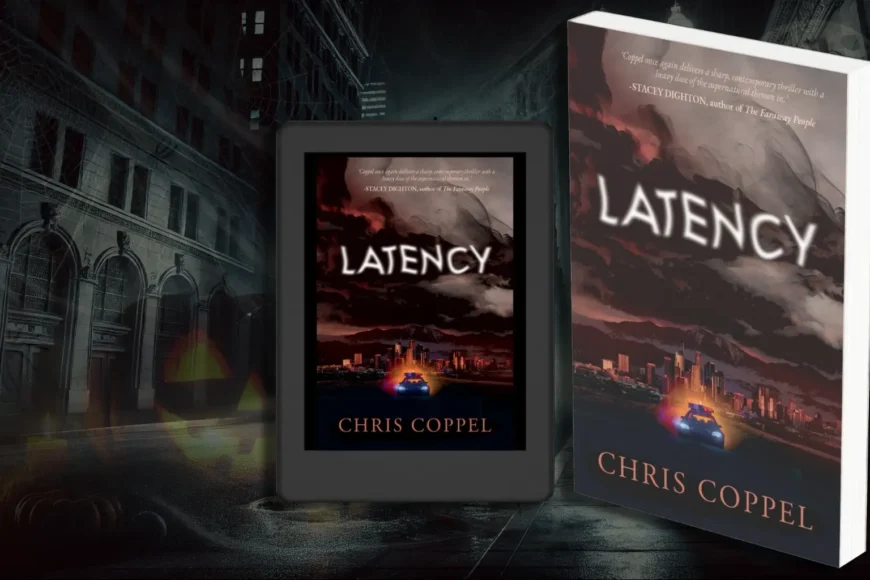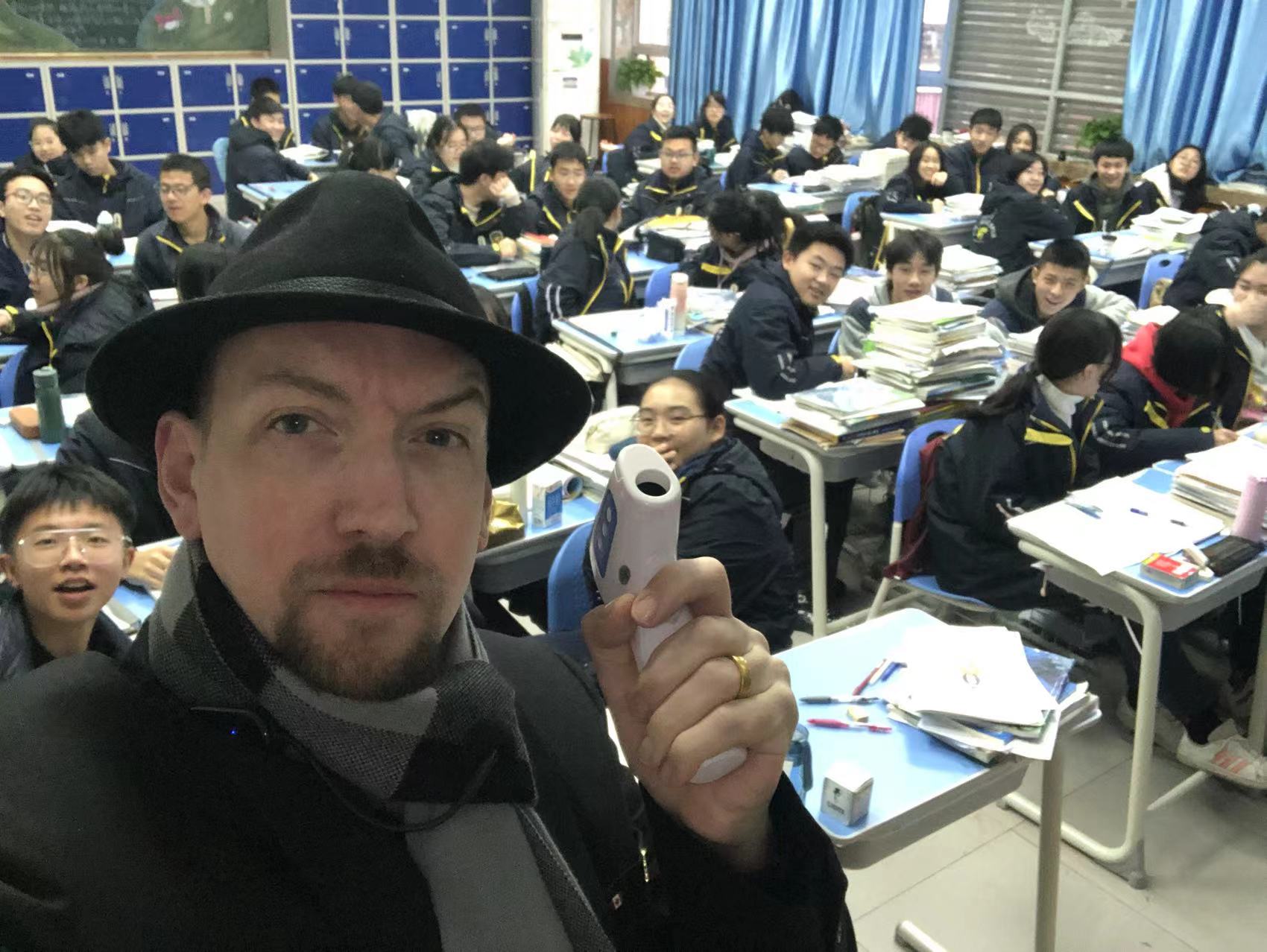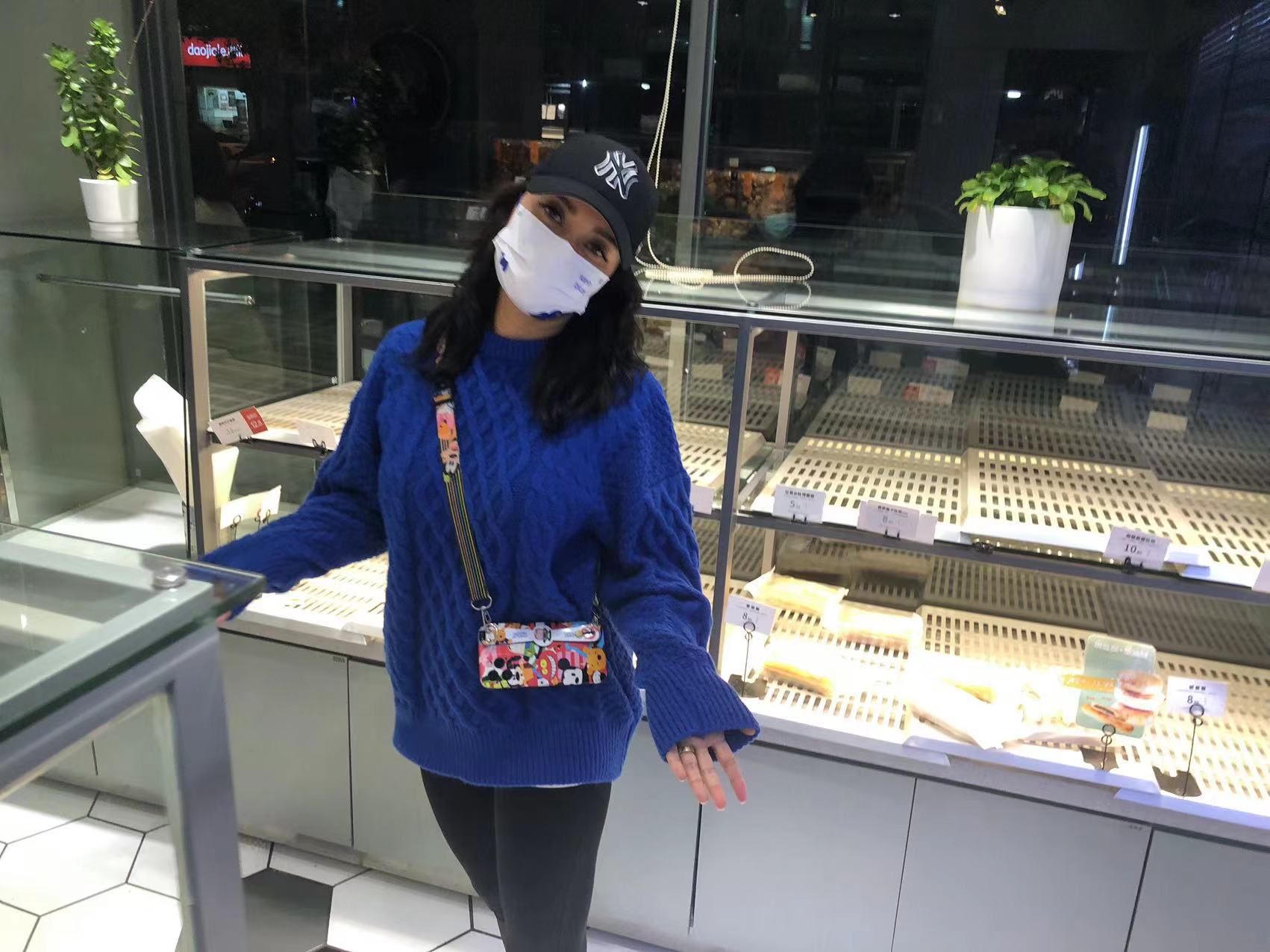As Halloween approaches and the veil between worlds thins, it’s the perfect time to delve into tales that blur the line between reality and the uncanny.
Latency catapults you into the heart of Los Angeles’ darkest corners, where gritty detective work collides with unrelenting supernatural terror. Chris Coppel crafts a relentless narrative that grips you from the very first page, following Mason Darby and Teri Grey as they unravel gruesome cold cases intertwined with otherworldly, Lovecraftian horrors. His sharp, vivid prose paints a city teeming with hidden dangers and eerie secrets. Each twist pulls you deeper into a labyrinth of suspense and fear, keeping you up late into the witching hours as you turn page after page—hoping for some respite from the creeping things that go bump in the night.
With my own cosmic horror novel, The Sun Also Rises on Cthulhu, set to release soon—with preorders starting this Halloween—it’s the perfect season to explore stories that tap into the deepest fears of the unknown. I had the pleasure of sitting down with Chris Coppel to find out what makes his unique mind tick.
Jorah Kai: Thank you, Chris, for taking the time to speak with us today. Your extensive body of work, especially your latest novel Latency, has captivated both horror enthusiasts and aspiring writers alike. Your family moved across various countries during your childhood, living in places like Spain, France, Switzerland, and England. How did this nomadic upbringing influence your storytelling and your desire to become a writer?
Chris Coppel: I don’t think that nomadic lifestyle had anything to do with fostering a desire to write. It did, however, give me a far greater geographic palette from which to draw.
JK: Can you share some of the authors or genres that inspired you during your early years? How have these influences shaped the way you approach writing, especially in the horror and crime genres?
CC: Probably the earliest influence was Ray Bradbury. To this day, I find his stories stunningly original and able to transport my addled mind onto the page and into his dreamscape. After that, my horror faves are Stephen King and Peter Straub. Though both gentlemen’s storytelling is captivating and horrific, they tend to start dark and stay dark, whereas I prefer to give a tease of darkness in chapter one, then present an almost light and believable storyline which slowly leads the reader into the darkness that lies in wait. On the crime side, I became an ardent reader of the Bosch books and then moved over to Elvis Cole.
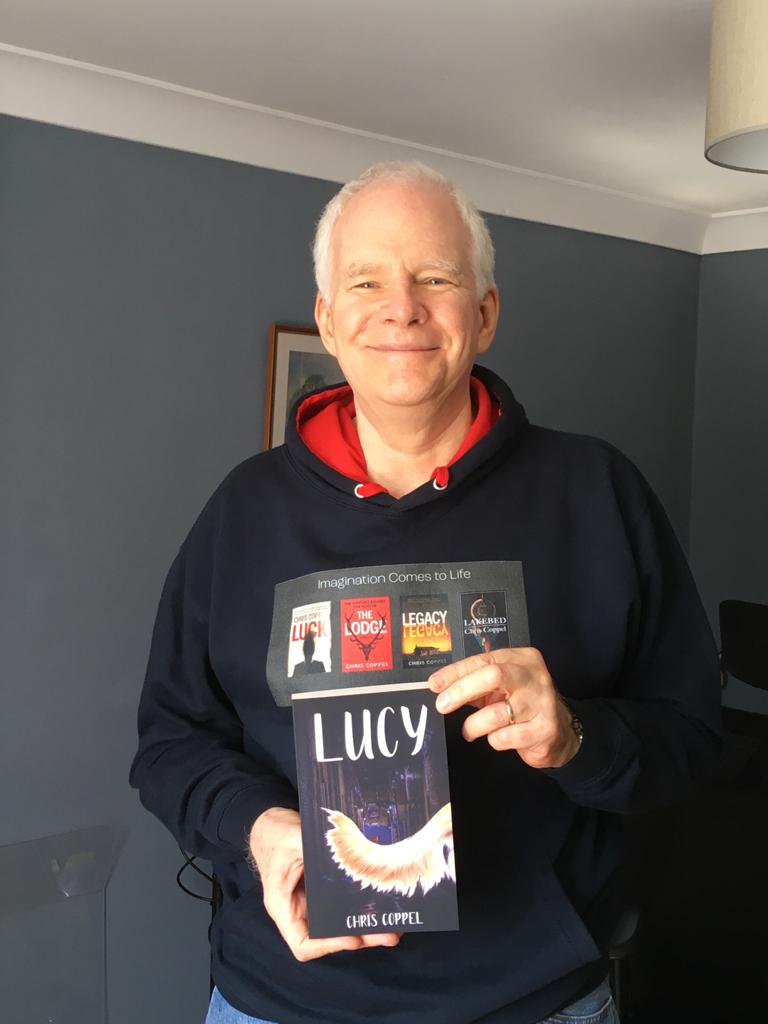
JK: You have an extensive background in screenwriting and even taught advanced screenwriting at UCLA. What inspired you to transition from writing screenplays to crafting novels, and how do these two forms of writing complement each other in your work?
CC: Editing. Editing. Editing. My background in scriptwriting taught me how to edit scenes together in such a way as to make a story almost visual (which makes sense considering a screenplay depicts when to cut so as to keep the TV show or movie tight yet compelling). When I started writing my first book, I found myself meandering happily all over the place. Then, at some point, I realized that by folding in my editing skill from scripts, I could apply the same principles to a novel.
JK: Can you walk us through your current writing process? How do you develop your stories and characters from the initial idea to the final draft?
CC: I tried early on to do a complete outline, but after a couple of false starts, I found that doing that tied me to plot points that didn’t permit the story to potentially morph into something far more interesting. What I do now is take notes of a beginning and the end, or at least a loose idea of what the end might be. That’s all I do in advance. Then, during the arduous process of writing the first draft, ideas for plot points or characters pop into my head whenever and wherever I happen to be, and I note these for later. In most cases, however, no matter what I intend to write on any specific day gets hijacked as I type, and the story almost magically veers in another direction. I just hold on tight and go for the ride.
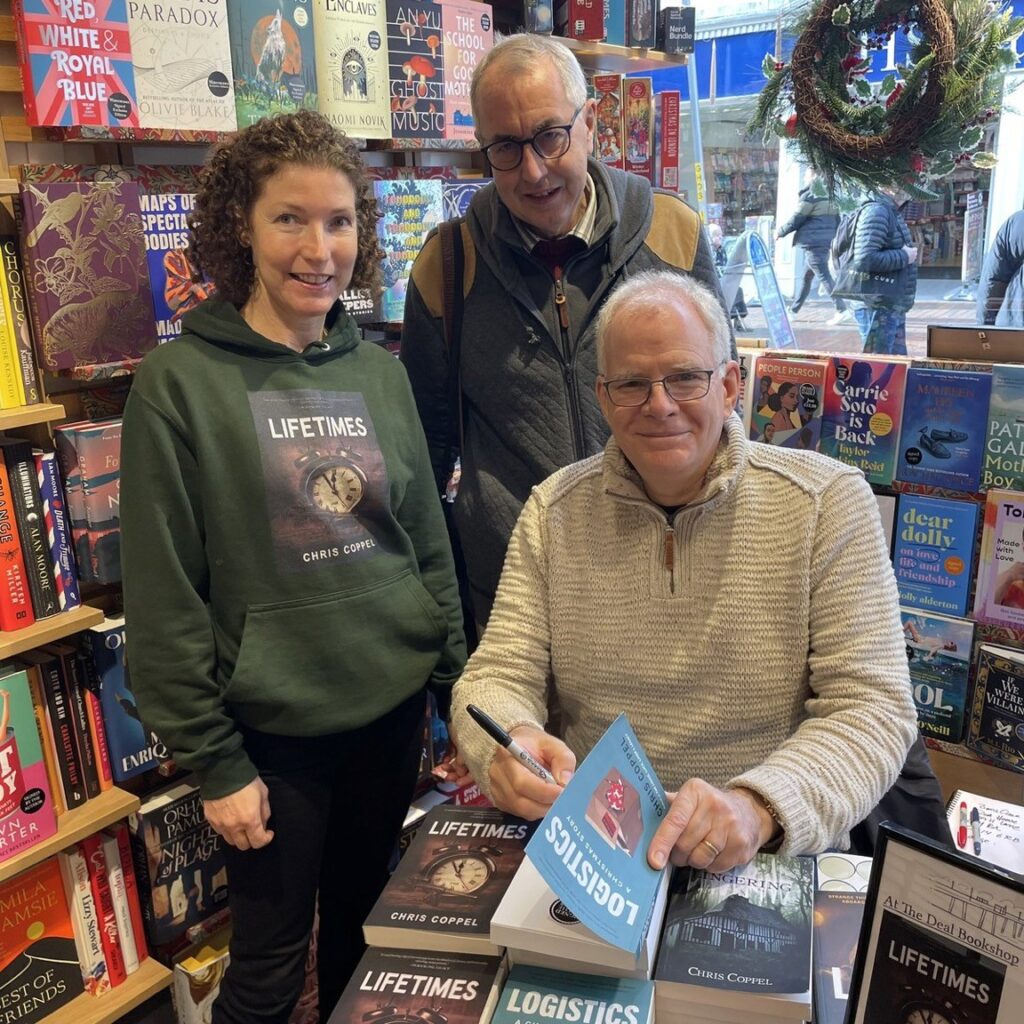
JK: What does a typical day in your life look like when you’re working on a novel? Do you have specific routines or habits that help you stay focused and productive?
CC: Very simple. I force myself to sit at the computer for two hours in the morning and two in the afternoon, Monday through Friday. I found early on that if I dawdle around waiting for inspiration, nothing of note ever appears. If I have a serious block one day, I will start a short story instead. Usually, by the next writing session, I am back in the zone.
JK: Latency has received praise for its gripping narrative and intricate plot. What was the inspiration behind this novel, and how did you develop the connection between the LAPD detectives and the otherworldly dimension in the story?
CC: As mentioned earlier, I became a big fan of Michael Connelly’s Bosch series. Being a Los Angelino, I loved how he used the city almost as a character in each book. I started pondering whether it was possible to create a quality crime story that could devolve into something far darker and unexpected—tapping into cosmic horror—while folding in some of the city’s ludicrously extravagant excesses and trends. As always, I came up with a beginning and a potential end and started typing. If I do say so myself, I think I somehow pulled it off. FYI, I am at this very moment writing chapter 5 of the sequel.
JK: How do you approach research for your novels to ensure authenticity, especially when depicting specific locations or intricate plot details?
CC: Google, Google, Google. It is terrifying how easy it is to research just about everything you need for a story. Because of my geographic arsenal, I can do the location stuff from memory, and if I want to stray to a neighborhood I don’t know, I use Google Street View and am able to walk through any street in any city in the world (well, almost).
JK: With 13 novels to your name, how do you approach creating compelling and relatable characters, particularly within the horror genre? Are there specific techniques or experiences that help your characters resonate with readers?
CC: I can’t explain how I do this, as I honestly don’t know. All I can tell you is that once I do my setup chapter and start on the main story, the characters seem to develop by themselves. That is not to say that such a method is foolproof. On many occasions, I create a character from scratch, then halfway through realize that I either don’t like him or her and have to go back and remold them.
JK: What advice would you offer to aspiring horror writers or authors in general who are just starting out? Are there specific practices or mindsets you believe are crucial for success in this genre?
CC: Even if a budding writer isn’t going to write horror, buy Stephen King’s book On Writing. It is a fantastic guidebook on dialogue, editing, storytelling, and discipline. Dedication is essential. Just sit and write. Nothing will happen if you don’t! Also, do not attempt to write so as to avoid offending anyone. That is impossible nowadays; besides, you need to write from your inner you. I once let my wife do an edit pass on one of my stories, and it came back with no profanity, no sex, and no violence. Who the hell wants to read that!!?? One last piece of advice: Don’t anguish over the perfection of your prose during the first draft. Just get the story down in its entirety. You’ll have as long as it takes to tweak and fiddle with it later. If you try and do that from the start, you will never get a flowing draft.
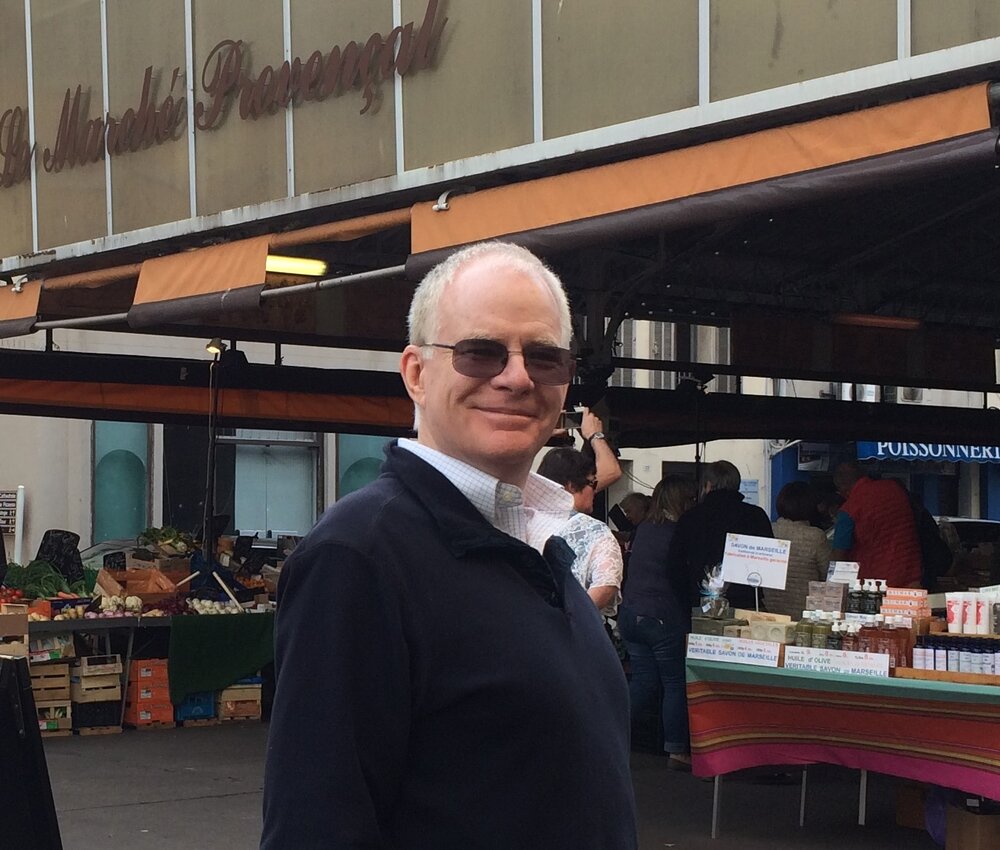
JK: Inspiration can be elusive. Can you share how you typically find inspiration for your stories and ideas? Perhaps a specific moment or experience that sparked an idea for one of your novels?
CC: Inspiration is a tricky mistress. The more you seek her out, the harder she’ll be to find. My next book, which comes out in May next year, came into being while I was out for a walk on this amazingly higgledy-piggledy street in the fishing village where I live and saw a very pale and overly formally dressed man ring a doorbell on a 300-year-old cottage. The mist, the dimming light of dusk, and the leaching history coming off the tiny building was all it took. That visual alone set the wheels in motion, and my next creature began to take shape, as did the idea of using the town and its storied past as the background for the entire story. My only advice would be: don’t try and create inspiration while at the same time don’t let some little visual or notion fly on by unnoticed!
JK: Chris, it’s been a pleasure discussing your work and gaining valuable insights into your creative process. Your advice will undoubtedly inspire many aspiring authors and fans alike. Thank you for sharing your experiences, and best of luck with your upcoming sequel!
